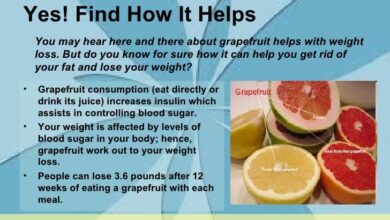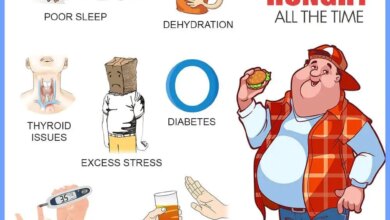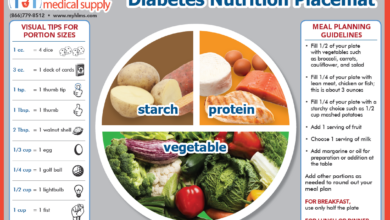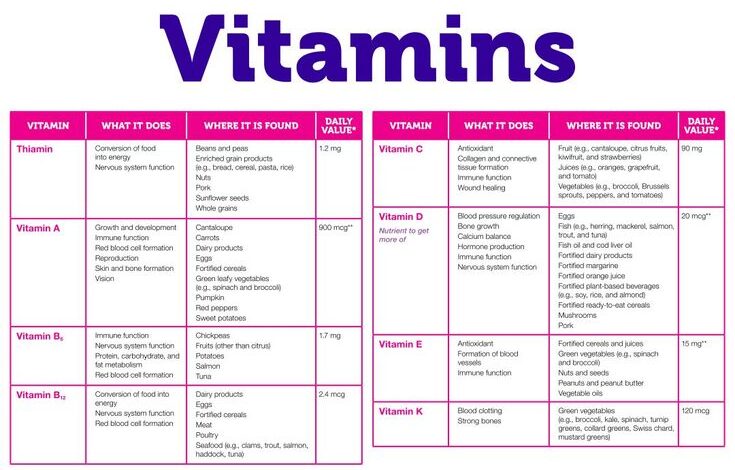
Nutrition 101: Vitamins, Minerals, and Your Infographic Guide
Nutrition 101 vitamins minerals infographic – Nutrition 101: Vitamins, Minerals, and Your Infographic Guide – Ever wondered what makes your body tick? From the energy that fuels your workouts to the strength that helps you conquer your day, it all comes down to the building blocks of nutrition: vitamins and minerals.
This infographic journey will take you through the fascinating world of essential nutrients, revealing how they work, where to find them, and why they’re crucial for a healthy life.
This guide will explore the fundamental roles of vitamins and minerals in our bodies, shedding light on their diverse functions, essential sources, and the potential consequences of deficiencies. We’ll delve into the specific needs of different life stages, from infancy to adulthood, ensuring you understand how to fuel your body throughout your journey.
Prepare to discover the power of food and unlock the secrets to a vibrant, well-nourished life!
Introduction to Nutrition 101
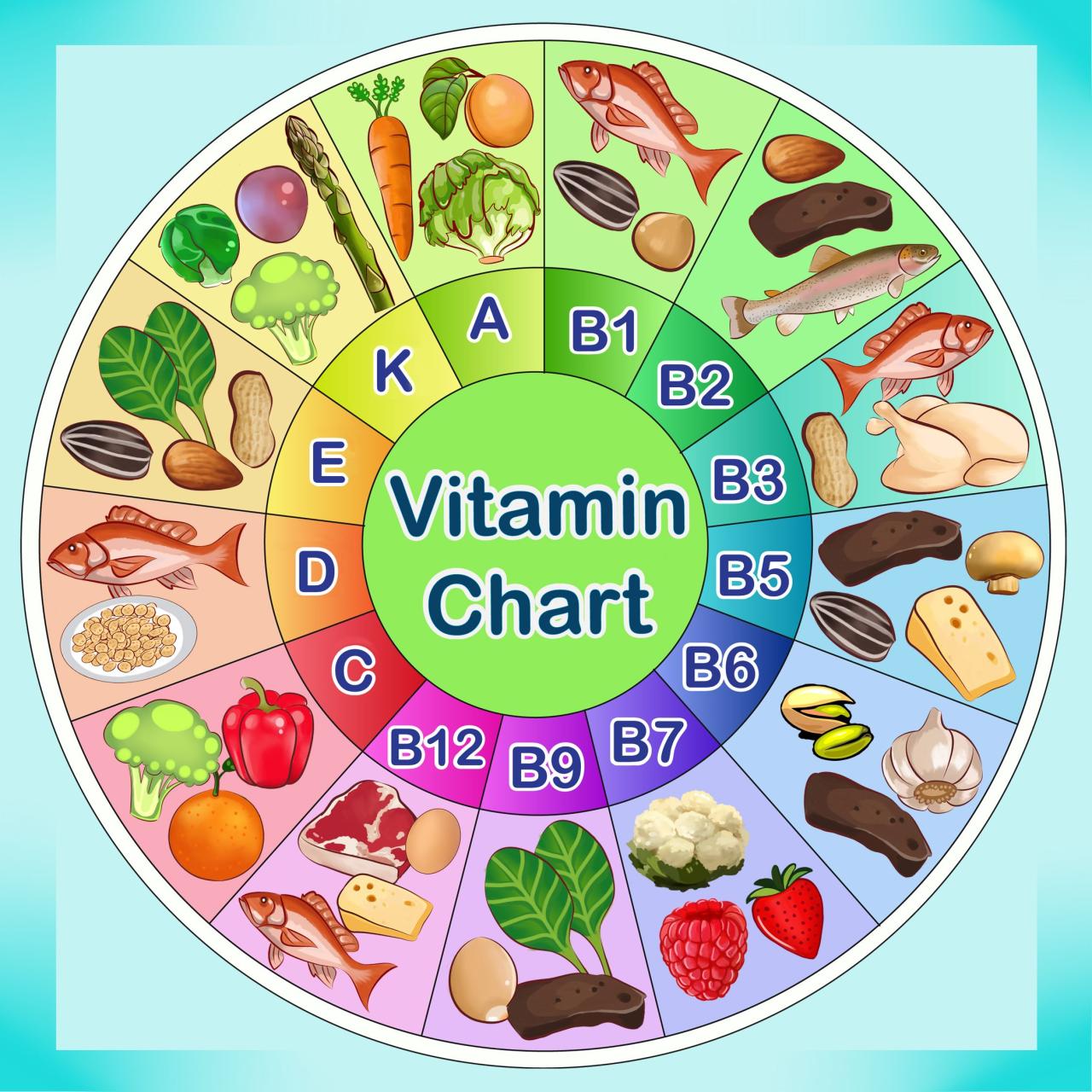
Nutrition is the process of consuming and utilizing food for growth, maintenance, and overall health. It plays a crucial role in our well-being, influencing everything from our energy levels and mood to our susceptibility to chronic diseases. Understanding the basics of nutrition can empower us to make informed food choices that support our health and longevity.
The Role of Vitamins and Minerals
Vitamins and minerals are essential micronutrients that our bodies need in small amounts to function properly. They cannot be produced by the body and must be obtained through our diet. Vitamins are organic compounds that play a vital role in various metabolic processes, while minerals are inorganic substances that contribute to building strong bones, regulating fluid balance, and supporting nerve function.
Common Nutrient Deficiencies and Their Consequences
Nutrient deficiencies occur when our bodies don’t receive enough of certain essential vitamins and minerals. These deficiencies can lead to various health problems, depending on the specific nutrient missing.
Examples of Common Nutrient Deficiencies and Their Potential Consequences:
- Iron deficiency (Anemia):Iron is crucial for red blood cell production, which carries oxygen throughout the body. Iron deficiency can cause fatigue, shortness of breath, and pale skin.
- Vitamin D deficiency:Vitamin D is essential for calcium absorption and bone health. Deficiency can lead to weak bones, osteoporosis, and increased risk of fractures.
- Iodine deficiency:Iodine is vital for thyroid hormone production, which regulates metabolism. Deficiency can cause hypothyroidism, leading to fatigue, weight gain, and cognitive impairment.
- Vitamin B12 deficiency:Vitamin B12 is essential for cell growth and development, particularly in the nervous system. Deficiency can cause fatigue, numbness, and tingling in the hands and feet.
Essential Vitamins
Vitamins are organic compounds that are essential for various bodily functions. They cannot be synthesized by the body and must be obtained through diet. Vitamins are classified into two groups: water-soluble and fat-soluble.
Water-Soluble Vitamins, Nutrition 101 vitamins minerals infographic
Water-soluble vitamins are easily absorbed into the bloodstream and are not stored in the body. Therefore, regular intake is essential.
I’m always fascinated by how our bodies use vitamins and minerals, and a great visual aid for understanding this is a nutrition 101 vitamins and minerals infographic. It helps break down complex information into easy-to-digest chunks, just like a good plate of pasta! Speaking of pasta, have you ever wondered if can pasta be healthy ?
It can be, depending on the type of pasta and how it’s prepared. But back to the infographic, it’s a great way to visualize how different nutrients contribute to our overall well-being.
- Vitamin C (Ascorbic Acid): An antioxidant that helps protect cells from damage, supports immune function, and aids in collagen synthesis.
- Sources:Citrus fruits, strawberries, broccoli, bell peppers.
- Deficiency Symptoms:Scurvy, characterized by fatigue, bleeding gums, and slow wound healing.
- Vitamin B Complex: A group of eight vitamins that play crucial roles in energy metabolism, cell growth, and nervous system function.
- Sources:Whole grains, meat, poultry, fish, eggs, dairy products, legumes, nuts, and leafy green vegetables.
- Deficiency Symptoms:Vary depending on the specific B vitamin deficiency. For example, a deficiency in thiamin (B1) can lead to beriberi, characterized by fatigue, muscle weakness, and nerve damage.
- Niacin (Vitamin B3): Involved in energy production, DNA repair, and cell signaling.
- Sources:Meat, poultry, fish, nuts, seeds, and whole grains.
- Deficiency Symptoms:Pellagra, characterized by dermatitis, diarrhea, and dementia.
- Pantothenic Acid (Vitamin B5): Essential for the production of coenzyme A, which is involved in many metabolic processes.
- Sources:Meat, poultry, fish, eggs, dairy products, mushrooms, and avocado.
- Deficiency Symptoms:Fatigue, numbness, and tingling in the hands and feet.
- Biotin (Vitamin B7): Plays a role in carbohydrate, fat, and protein metabolism.
- Sources:Egg yolks, liver, nuts, seeds, and whole grains.
- Deficiency Symptoms:Hair loss, skin rashes, and fatigue.
- Folate (Vitamin B9): Essential for cell division and growth, particularly important during pregnancy.
- Sources:Leafy green vegetables, fortified cereals, legumes, and citrus fruits.
- Deficiency Symptoms:Megaloblastic anemia, characterized by fatigue, shortness of breath, and pale skin.
- Vitamin B12 (Cobalamin): Involved in cell growth and development, and the production of red blood cells.
- Sources:Meat, poultry, fish, eggs, dairy products, and fortified cereals.
- Deficiency Symptoms:Pernicious anemia, characterized by fatigue, weakness, and neurological problems.
Fat-Soluble Vitamins
Fat-soluble vitamins are absorbed into the bloodstream with the help of fats. They are stored in the body’s fat tissues and can build up to toxic levels if consumed in excess.
Understanding the basics of nutrition, like vitamins and minerals, can feel overwhelming. But just like focusing on your mental health is crucial for overall well-being, fueling your body with the right nutrients is essential. If you’re struggling to find the motivation to prioritize healthy eating, check out 10 ways to stay sane when working from home – some of the tips might help you find the energy and focus to create a balanced diet that supports your overall health.
- Vitamin A (Retinol): Essential for vision, immune function, and cell growth.
- Sources:Liver, dairy products, eggs, fortified cereals, and dark leafy green vegetables.
- Deficiency Symptoms:Night blindness, dry skin, and impaired immune function.
- Vitamin D (Calciferol): Plays a crucial role in calcium absorption and bone health.
- Sources:Sunlight, fatty fish, egg yolks, and fortified foods.
- Deficiency Symptoms:Rickets in children and osteomalacia in adults, characterized by weak bones and muscle pain.
- Vitamin E (Tocopherol): A powerful antioxidant that protects cells from damage.
- Sources:Vegetable oils, nuts, seeds, and leafy green vegetables.
- Deficiency Symptoms:Muscle weakness, nerve damage, and impaired immune function.
- Vitamin K (Phylloquinone and Menaquinone): Essential for blood clotting and bone health.
- Sources:Leafy green vegetables, broccoli, and Brussels sprouts.
- Deficiency Symptoms:Excessive bleeding and bruising.
Comparison of Water-Soluble and Fat-Soluble Vitamins
| Feature | Water-Soluble Vitamins | Fat-Soluble Vitamins ||—|—|—|| Solubility| Dissolve in water | Dissolve in fat || Storage in the Body| Not stored | Stored in fat tissues || Toxicity| Less likely to be toxic | Can build up to toxic levels || Daily Intake| Regular intake is required | Intake can be less frequent || Examples| Vitamin C, B vitamins | Vitamin A, D, E, K |
Essential Minerals
Minerals are inorganic substances that our bodies need in small amounts to function properly. They play crucial roles in a wide range of bodily processes, including bone health, muscle function, nerve transmission, and energy production. Unlike vitamins, which are organic compounds, minerals are not produced by the body and must be obtained through our diet.
Mineral Functions, Sources, and Deficiency Symptoms
Mineral deficiencies can lead to various health problems. Understanding the functions of each mineral, its dietary sources, and the symptoms of deficiency can help us make informed dietary choices to ensure we meet our mineral needs.
Understanding the basics of nutrition, like the vitamins and minerals found in different foods, is a great start to eating healthy. But, to truly nourish your body, you need to know how to prepare those foods in a way that preserves their nutrients and flavor.
That’s where learning essential cooking skills everyone should master comes in! From chopping vegetables to cooking grains, these skills allow you to create delicious and nutritious meals that support your overall health and well-being. So, dive into the world of nutrition 101, and don’t forget to equip yourself with the cooking skills to bring your knowledge to life.
| Mineral | Function | Sources | Deficiency Symptoms |
|---|---|---|---|
| Calcium (Ca) | Bone and teeth formation, muscle contraction, nerve transmission, blood clotting | Dairy products, leafy green vegetables, fortified foods | Osteoporosis, rickets, muscle cramps, tetany |
| Iron (Fe) | Oxygen transport in red blood cells, energy production | Red meat, poultry, fish, beans, lentils, spinach | Iron-deficiency anemia, fatigue, weakness, pale skin |
| Magnesium (Mg) | Muscle and nerve function, blood sugar control, blood pressure regulation | Green leafy vegetables, nuts, seeds, whole grains | Muscle cramps, fatigue, headaches, insomnia, high blood pressure |
| Potassium (K) | Fluid balance, nerve and muscle function, blood pressure regulation | Bananas, potatoes, tomatoes, beans, lentils | Muscle weakness, fatigue, irregular heartbeat, high blood pressure |
| Sodium (Na) | Fluid balance, nerve transmission, muscle contraction | Salt, processed foods, table salt | Hyponatremia (low sodium levels), muscle cramps, fatigue, confusion |
| Zinc (Zn) | Immune function, wound healing, cell growth and development | Meat, poultry, seafood, beans, nuts, seeds | Impaired immune function, delayed wound healing, hair loss, loss of taste and smell |
| Phosphorus (P) | Bone and teeth formation, energy production, cell membrane function | Dairy products, meat, poultry, fish, eggs, nuts, seeds | Bone weakness, muscle weakness, fatigue, confusion |
| Iodine (I) | Thyroid hormone production, metabolism | Seafood, iodized salt, dairy products | Hypothyroidism, goiter, mental retardation in children |
| Selenium (Se) | Antioxidant, immune function, thyroid hormone metabolism | Brazil nuts, seafood, meat, eggs, whole grains | Keshan disease (heart muscle damage), Kashin-Beck disease (joint damage) |
The Role of Vitamins and Minerals in Different Life Stages
Our bodies require a range of vitamins and minerals to function optimally, and these needs change throughout our lives. From infancy to old age, different life stages have unique nutritional demands that are crucial for growth, development, and overall well-being.
Nutritional Needs of Infants
The first year of life is a period of rapid growth and development, making it essential for infants to receive adequate nutrients. Breast milk is considered the ideal food for infants, as it provides all the essential vitamins and minerals in easily digestible forms.
However, some infants may require supplementation, especially for vitamin D and iron.
- Vitamin D:Sunlight exposure and vitamin D-fortified formula are crucial for bone health and calcium absorption.
- Iron:Iron deficiency anemia is a common concern in infants, and iron-rich foods like fortified cereals and meat should be introduced after six months.
Nutritional Needs of Children
Children continue to grow and develop at a rapid pace, requiring a balanced diet rich in essential nutrients.
- Calcium:Calcium is vital for bone growth and development, and dairy products, leafy green vegetables, and fortified foods are excellent sources.
- Iron:Children need adequate iron for healthy red blood cell production, and lean meats, beans, and fortified cereals are good choices.
- Vitamin A:Vitamin A is crucial for vision, immune function, and growth, and it can be found in foods like sweet potatoes, carrots, and spinach.
Nutritional Needs of Adolescents
Adolescence is a time of significant physical and hormonal changes, demanding increased nutrient intake to support growth spurts, bone development, and energy requirements.
- Calcium:Calcium intake is crucial for bone density and growth, and adolescents should consume dairy products, leafy greens, and fortified foods.
- Iron:Iron needs increase during adolescence due to increased blood volume and growth. Lean meats, beans, and fortified cereals are good sources of iron.
- Vitamin B12:Vitamin B12 is essential for cell growth and development, and adolescents should include meat, poultry, fish, and fortified foods in their diets.
Nutritional Needs of Adults
Adults need a balanced diet to maintain overall health and prevent chronic diseases.
- Calcium:Calcium intake is crucial for bone health and can be obtained from dairy products, leafy greens, and fortified foods.
- Vitamin D:Vitamin D is important for calcium absorption and bone health, and adults should get adequate sunlight exposure or supplement.
- Fiber:Fiber promotes digestive health and can help regulate blood sugar levels.
Whole grains, fruits, and vegetables are excellent sources of fiber.
Nutritional Needs of Older Adults
As we age, our bodies require adjustments in nutrient intake to support health and well-being.
- Vitamin B12:Older adults may have difficulty absorbing vitamin B12, so supplementation or fortified foods may be necessary.
- Vitamin D:Vitamin D needs increase with age, and older adults should get adequate sunlight exposure or supplement.
- Calcium:Calcium intake is crucial for bone health and can be obtained from dairy products, leafy greens, and fortified foods.
Food Sources of Vitamins and Minerals
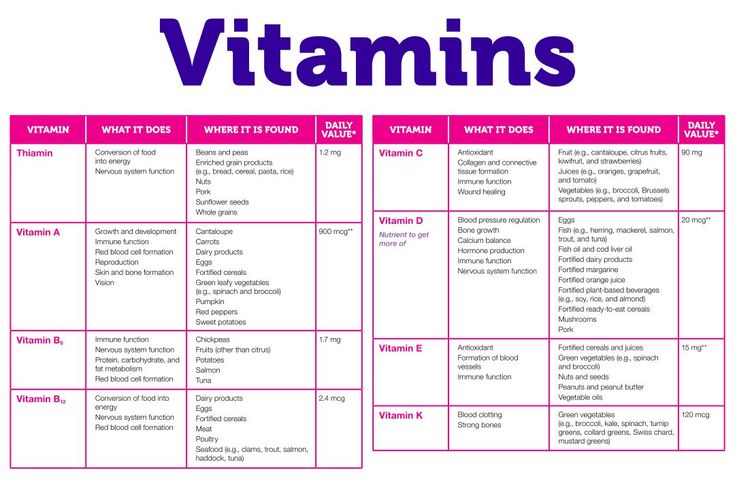
A balanced diet rich in various foods provides the essential vitamins and minerals your body needs to function optimally. These nutrients play vital roles in maintaining health, boosting immunity, and supporting numerous bodily processes. By understanding the diverse food sources of vitamins and minerals, you can make informed choices to ensure you’re getting the nutrients you need.
Food Sources of Vitamins and Minerals
A diverse range of foods provides a spectrum of vitamins and minerals. It is essential to consume a variety of foods from different food groups to meet your nutritional needs.
- Fruits: Fruits are excellent sources of vitamins, minerals, and antioxidants. Citrus fruits like oranges, grapefruits, and lemons are rich in vitamin C, a powerful antioxidant that supports immune function and collagen production. Berries, such as strawberries, blueberries, and raspberries, are packed with antioxidants and vitamin K, essential for blood clotting.
Bananas are a good source of potassium, vital for maintaining healthy blood pressure. Apples are rich in fiber and vitamin C, contributing to digestive health and immune function.
- Vegetables: Vegetables are nutrient powerhouses, providing a wide array of vitamins, minerals, and fiber. Leafy greens like spinach, kale, and collard greens are excellent sources of vitamins A, C, and K, along with iron and calcium. Cruciferous vegetables, including broccoli, cauliflower, and Brussels sprouts, are rich in vitamin C, folate, and fiber.
Carrots are a good source of vitamin A, crucial for vision and skin health. Sweet potatoes are packed with vitamin A, vitamin C, and fiber, contributing to immune function and digestive health.
- Whole Grains: Whole grains are rich in fiber, B vitamins, and minerals. Brown rice, quinoa, oats, and whole-wheat bread are excellent sources of complex carbohydrates, providing sustained energy. These grains also contain magnesium, which plays a role in muscle function and blood sugar regulation.
- Legumes: Legumes, such as beans, lentils, and peas, are excellent sources of protein, fiber, and iron. They are also good sources of folate, magnesium, and potassium, contributing to overall health and well-being.
- Dairy Products: Dairy products, including milk, yogurt, and cheese, are rich in calcium, essential for strong bones and teeth. They are also good sources of vitamin D, which aids in calcium absorption. Some dairy products are fortified with vitamin A and vitamin B12, contributing to overall health.
- Meat and Poultry: Meat and poultry are excellent sources of protein, iron, and zinc. Lean meats, such as chicken, turkey, and fish, are healthier options as they contain less saturated fat.
- Nuts and Seeds: Nuts and seeds are packed with healthy fats, protein, fiber, and vitamins and minerals. Almonds, walnuts, cashews, and sunflower seeds are excellent sources of vitamin E, magnesium, and selenium, contributing to immune function, heart health, and overall well-being.
Last Point: Nutrition 101 Vitamins Minerals Infographic
So, embrace the power of nutrition and make informed choices about your dietary intake. By understanding the vital roles of vitamins and minerals, you can empower yourself to make healthy choices that fuel your body and support a vibrant life.
Remember, a balanced diet, rich in diverse foods, is the key to unlocking your body’s full potential. Let this infographic be your guide, and embark on a journey to optimal health and well-being!

